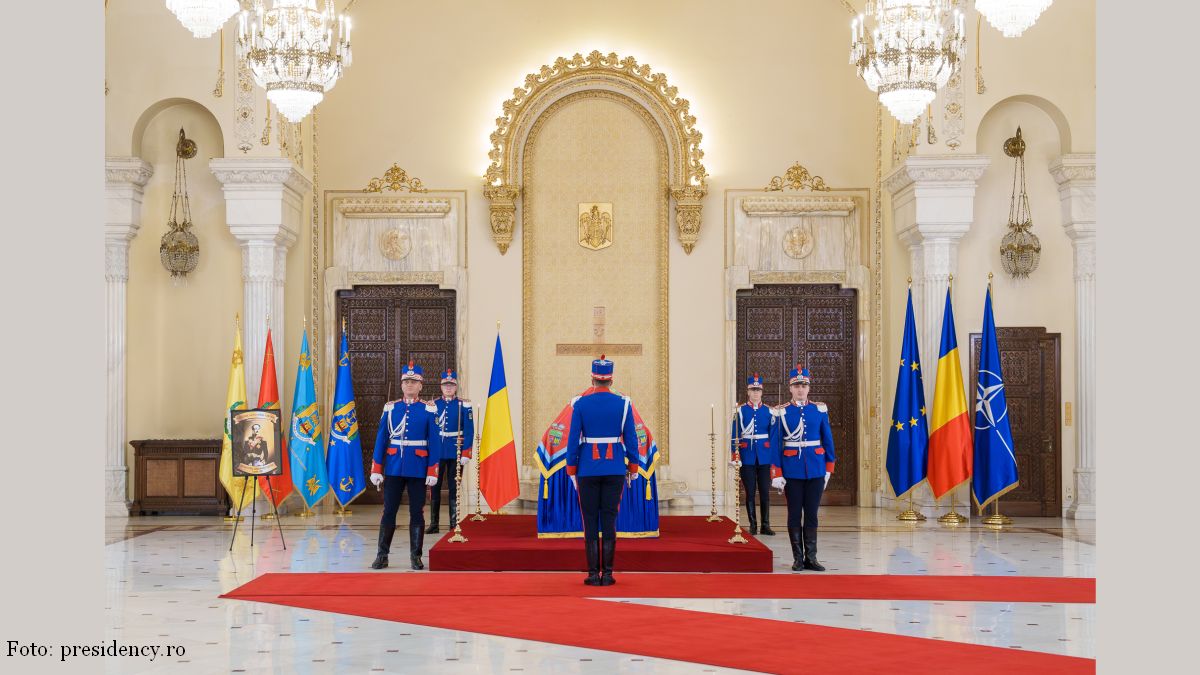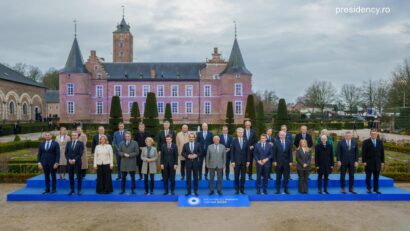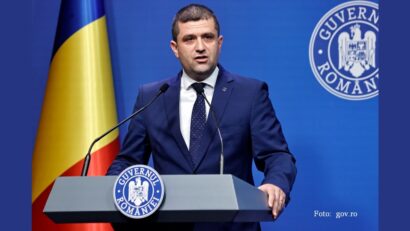Prince Ghyka in brought back home
The remains of Prince Grigore Alexandru Ghyka, a brilliant historical figure of the 19th century, have been repatriated to Romania.

Bogdan Matei, 11.11.2025, 13:50
A personality almost unknown to the general public, the last ruler of the Romanian principality of Moldavia (east), Grigore Alexandru Ghyka, is receiving belated recognition these days. His repatriation is not only an act of symbolic restoration, but also a gesture of national gratitude towards a leader who laid the foundations of the modern Romanian state, the authorities in Bucharest say.
After being exhumed on November 7, from a locality near Paris, France, where the ruler lived the last part of his life in exile, the coffin with his remains was brought with military honors to Bucharest, where they were laid at the Union Hall of the presidential palace. There, a ceremony was held with the participation of President Nicuşor Dan, who laid a wreath and lit candles.
The history of Moldavia is part of the history of Romania. Since the Middle Ages, Moldavia has also been called Little Wallachia, proof of the common identity of language, culture and nation, said President Nicusor Dan, concluding: “Welcome home, Your Majesty!” Special events on the occasion of the repatriation of the coffin then took place in Focșani (southeast), for centuries a border town between the two Romanian principalities, Moldavia and Wallachia. The remains of Grigore Alexandru Ghyka will be buried on Wednesday in Iași (northeast), the former capital of Moldavia, near the Orthodox church in which he was anointed ruler.
Born in 1804, into a respected boyar family, and on the throne, with a brief interruption, between 1849 and 1856, Grigore Alexandru Ghyka is described by historians as one of the most visionary political figures of the 19th century. He was a unionist militant, he paved the way for the Union of the Romanian Principalities, in 1859, and he promoted essential values for modern society: freedom, social justice, dignity. He supported courageous reforms, from the emancipation of the Roma, long before the abolition of slavery in the United States, and the abolition of censorship, to the development of public services and the introduction of a model of government inspired by the great European democracies. He opened the first maternity hospital in Moldavia with his own money. He supported the establishment of the school of road and construction engineers. He founded the Gendarmerie, after the French model of the time. He reduced taxes and duties and supported free trade.
A promoter of Western values in a turbulent era, when control over the Romanian Principalities was disputed by the Ottoman Empire and Tsarist Russia, the ruler sent one of his sons to study in Germany. In the last weeks of his reign, Grigore Alexandru Ghyka had firmly supported the Union of the Romanian Principalities. Forced by the great powers of the era to abdicate and go into exile, he traveled by ship on the Danube to Pesta, then by train to Berlin, in order to avoid passing through Vienna, out of aversion to the Austrian Empire and its anti-unionist position. On August 3, 1856, he arrived in Paris, where the Romanians in exile welcomed him with joy, as a unionist militant. A year later, he committed suicide, amid a poorly treated neurasthenia. (EE)






























